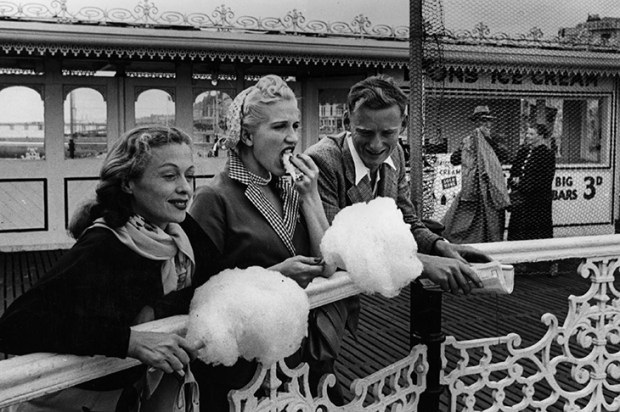‘Marianne had the sense that her real life was happening somewhere very far away, happening without her, and she didn’t know if she would ever find out where it was and become part of it.’ This is the most frustrating part of being alienated and young. You hope that there’s a better life in store for you but you can’t yet bank on it.
Sally Rooney appeared two years ago with Conversations with Friends and has rightly been fêted as one of the most important writers of her generation. The question of generation matters because she’s writing about young people. Both novels feature protagonists who are undergraduates in Rooney’s own Dublin. What’s remarkable is how she’s at once fully immersed in the world she writes about (the narrative voice easily convinces as the voice of a 20-year-old) and able forensically to observe both the characters and their world, as though from a great distance. It’s this combination that makes her so convincingly the real thing: a unique, fully formed talent.
The plot of Normal People is simple. Marianne and Connell are school friends, brought together by a strong intellectual and emotional connection but separated by the brutal segregations of the young. His mother is her mother’s cleaner and, more importantly, he is cool, while she’s a geeky loner. They fall in love but he pretends not to know her when at school and the relationship disintegrates. When they next meet they are both studying at Trinity College. Now she is the cool one and he is lost among this new, worldlier set. They resume their relationship and the book charts its fluctuations and ruptures.
The straightforward plot allows Rooney to experiment with narrative technique. She moves frequently between the point of view of the two characters and between the present and past tense. I didn’t think these shifts always worked, though at times they’re very impressive, and I also worried about the inclusion of darker material, when Marianne starts self-harming and Connell becomes depressed. I was concerned that the humour and lightly brilliant observation would be lost. However, Rooney pulls back from the abject to the ordinary just in time. We’re reminded of the peculiar plasticity of the young and of Rooney’s style, which turns out to be flexible enough to incorporate the darker material without losing its verve.
The return to the ordinary enables Rooney to home in on what becomes the book’s central discovery. ‘Really, she thinks, really. People can really change one another.’ Marianne and Connell have been formed by each other. They would both be different people if they hadn’t met. This can happen at any age, though it’s most common in youth, and it leaves us with the book’s central questions: what rights do we have over the people with whom we’ve done this, and what responsibilities?
‘I’m not a religious person but I do sometimes think God made you for me,’ Connell tells Marianne. He watches her gathering information about his feelings, ‘something they have learned to do to each other over a long time, like speaking a private language’. Can this kind of bond be broken? How much of themselves will they lose if it is? These are important questions and Rooney does them justice in this elegant, insightful novel.
Got something to add? Join the discussion and comment below.
Get 10 issues for just $10
Subscribe to The Spectator Australia today for the next 10 magazine issues, plus full online access, for just $10.
You might disagree with half of it, but you’ll enjoy reading all of it. Try your first month for free, then just $2 a week for the remainder of your first year.














Comments
Don't miss out
Join the conversation with other Spectator Australia readers. Subscribe to leave a comment.
SUBSCRIBEAlready a subscriber? Log in